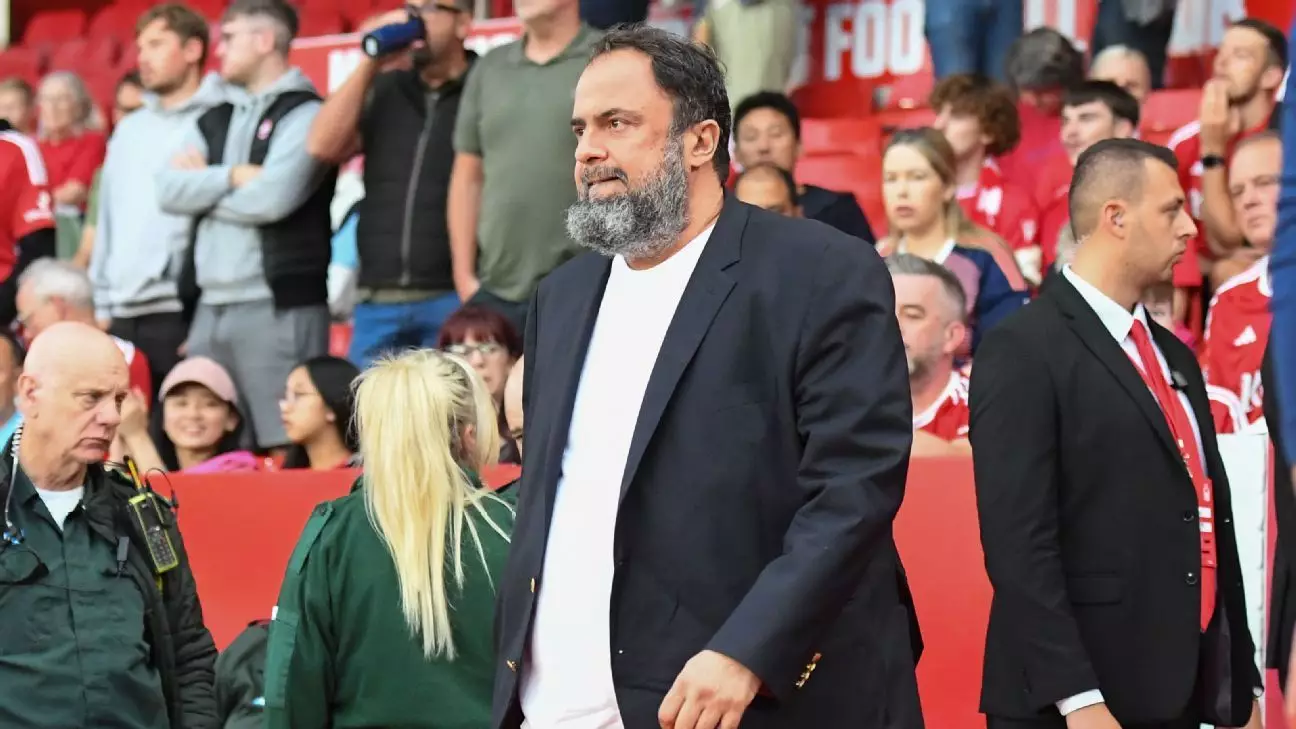The world of professional sports is no stranger to controversy, but certain incidents stand out due to their unexpected nature or the prominent figures involved. One such controversy recently enveloped Nottingham Forest, centering around the club’s owner, Evangelos Marinakis. The five-match stadium ban handed to Marinakis for “improper conduct” following an incident involving referee Josh Smith has not only sparked conversations about the conduct of officials and club owners but also raises critical questions about accountability and leadership in football.
The incident in question occurred in the tense atmosphere immediately following Nottingham Forest’s defeat to Fulham. Witnesses state that Marinakis was seen spitting near referee Josh Smith’s feet in the tunnel, a moment captured both verbally and visually by other match officials present. Marinakis staunchly denied any intentional misconduct, claiming that what occurred was merely a reflexive cough exacerbated by a hacking cough he had been suffering from that day. This defense raises questions about the nuances of perception in high-pressure environments, where the stakes are often amplified by emotions and adrenaline.
The statement from the FA supporting Marinakis’ ban was unequivocal. The governing body clarified that the footage of the incident did not corroborate Marinakis’s defense, suggesting that common courtesy would dictate covering one’s mouth if one were indeed about to cough. The prevailing narrative pointed away from an innocent misunderstanding, suggesting a breach of decorum was unfairly portrayed as a simple act of coughing.
Marinakis’s case is emblematic of broader challenges faced in sports governance regarding behavior and conduct. The decision made by the Football Association to impose a ban on an owner reinforces the message that accountability is paramount, regardless of someone’s stature within the organization. This incident does not occur in isolation; rather, it mirrors the challenges that the football community faces with respect to discipline and respect for officials.
Moreover, this controversy is not unique as numerous instances have raised the stakes for clubs and individuals involved in misconduct. The penalties faced by Nottingham Forest’s manager, Nuno Espírito Santo, and midfielder Morgan Gibbs-White for their respective transgressions underscore the league’s commitment to maintaining order and respect. Such instances create a ripple effect that shapes public perception, impacting not only those directly involved but the club’s image and ethos as a whole.
In the sphere of public opinion, the response to Marinakis’s ban varied widely. Fans and critics alike weighed in, with some expressing disbelief in the severity of the sanction while others felt it was necessary to uphold a standard of conduct for all involved in the game. The emergence of social media as a platform for instant commentary has transformed how clubs manage reputational risks, especially in the wake of misconduct allegations.
In some quarters, the incident reinforced negative stereotypes about club ownership in football, echoing long-standing discussions about the role of owners and their influence on club culture. For Nottingham Forest, a club storied in its history but struggling to find its way in the modern game, this episode presents a significant challenge in presenting a united front.
As Nottingham Forest navigates the immediate fallout of Evangelos Marinakis’s ban, the incident serves as a crucial moment for reflection within the club and the greater football community. The focus should not merely be on punitive measures but also on cultivating an atmosphere of respect and conduct. With stakeholders ranging from players and owners to referees and fans, fostering an environment that prioritizes professionalism and accountability will ultimately lead to a better experience for all involved.
In the world of sport, leadership goes beyond tactical prowess and financial investment; it requires a commitment to ethical standards that players, owners, and officials can uphold, fostering a culture where the integrity of the game is preserved for generations to come.

Leave a Reply